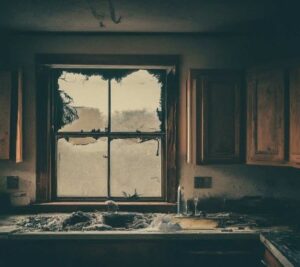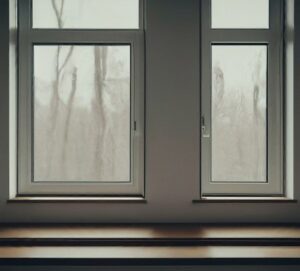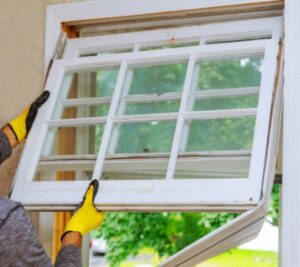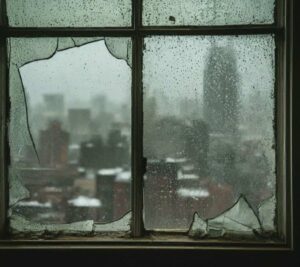Picture this to unveil the importance of home insurance: an overwhelming morning with the distinctive clamor of howling wind. Horrified, you find broken windows and moist interiors from howling winds and weak glass house windows.
I insure against broken windows and other damages, thinking, ‘There’s nothing to worry about.’. But as chaos settles, you wonder: Will home insurance cover the window replacement cost?
The answer is surely simple. The coverage type of your policy plays a major role in this case. Let’s say, for example, that you had a storm or a break-in that damaged your windows.
The good news is that there is still a chance that home insurance will cover your window replacement cost.
This blog post answers, “Does home insurance cover window replacement?”. It also explores dealing with homeowners insurance companies.
Understanding Home Insurance Coverage and Policies
After inspecting your broken windows and then considering a homeowners insurance claim, this may be the moment when you are finally forced to get a detailed understanding of your homeowner’s insurance policy. Window repair coverage is usually as stated in your homeowner insurance policy, with several exceptions. If, for example, there is damage from a break-in or a storm as mentioned earlier, the claim will be covered. In contrast, as far as broken window seals are concerned, the rules might be different, and this is where a careful inspection of the policy could be of help. If your case is a fire disaster, then your homeowner’s insurance policy should be helpful for the rectification of structural repairs as well as the replacement of content-related damage. Understanding your insurance policies and the terms and conditions is crucial in order to simplify the claims process.
Common Causes of Window Damage
The windows, the eyes of your entire home, are frequently involved and prone to several mishaps. Picture this: a child throws a ball with unmatched precision, turning your windows into a million pieces. That’s an accidental breakage at its finest, right? Or perhaps a fallen tree, propelled by a storm’s fury, creates a spectacle of shattered glass, causing extensive damage.
While general wear and tear are expected to happen to your window due to old age, certain situations, such as house fires, are deliberately excluded from many house insurance policies. Besides all of these open perils, everyday house chores such as home improvement may turn out to be the culprits themselves.
As homeowners, learning the specific reasons for window damages and whether they are explicitly mentioned in the contract or a consequence of wear and tear is crucial to conserving your home windows’ transparency and stability.
When Does Homeowners’ Home Insurance Cover Broken Windows?
You must remember that most homeowners insurance typically covers window damage only in the specified circumstances in your insurance policy. Most major insurance companies offer dwelling coverage, which, in certain cases, extends to covering accidental window breaks that may take place because of perils such as:
- storms
- vandalism
- break-ins
- someone from your house breaking your neighbor’s window
- explosions e.t.c
However, it’s essential to review your homeowners insurance policy to understand the specifics of your coverage regarding broken windows.
As we illustrated above, window damage coverage for different reasons may differ depending on the specific policy condition.
While some of the policies on display may have a specific window damage coverage limit for certain scenarios, such as an act of vandalism, others may exclude coverage or window repair costs for other scenarios, such as wear and tear or if intentional acts caused the damage.
Therefore, the right solution to this issue is to review your homeowners insurance policy carefully and consult with your insurance provider to make sure you have adequate coverage for broken windows.
How Does Home Insurance Cover Broken Windows?
Here’s a step-by-step process for understanding how your homeowners insurance policy covers broken windows:
-
Assessment of Damage by Insurance Providers
Upon filing a claim for broken windows, your homeowners insurance company provides an adjuster to evaluate how much damage has been done. The handler is responsible for identifying the reason for the damage and verifying if it falls under the covered perils outlined in your homeowner’s policy.
-
Coverage Determination Based on Homeowners Policy
After the assessment of your homeowners policy is done, this what will happen; The insurance company will then go through a through review to determine if the window damage is within the policy coverage. In addition, the coverage may be customized according to the cause of the damage, the source of the loss, and the particular provisions of your policy. The insurance company proceeds with the claims process if the damage is deemed covered.
-
Claims Processing with Your Homeowners Insurance Company
The next step is to contact your insurance company to confirm the coverage. Your insurance company should initiate the claim process. This means the audit process that will have to be done should include photos and descriptions of the damage and then validate your claim. The insurer may also guide the next steps in repairing or replacing the broken windows.
-
Facilitation of Window Repairs or Glass Replacement
Based on how much has to be replaced and your personal tastes, your insurance company will either facilitate the installation of new windows or repair the broken windows. During this step, you may collaborate with the contractors and glass repair specialists to ensure the window panes are restored to their pre-damaged state.
-
Reimbursement for Window Repairs or Replacement
After the restoration or replacement, submit the receipts and invoices to your homeowners insurance company for the money owed. The insurer then reviews the documentation and disburses the required funds to cover the costs of fixing the broken windows. Understanding this process is crucial for ensuring a smooth experience with your homeowners insurance coverage for window repairs or glass replacement.
Steps to Take When Facing Window Damage
Windows damage can bring along a lot of inconveniences and setbacks; in such cases, prompt and strategic responses are very crucial in enabling a full recovery period. If it is an immediate harm, such as a tornado, a violation by vandalism, or a gradual wear and tear, the following tips can guide you through your restoration process:

a. Document the Damage Initiate an in-depth assessment, noting down all the damages caused. Capture photographs from different perspectives and note down a description of the room in detail. It can’t be overemphasized that this stage is of paramount importance in insurance claims and provides a clear picture of the initial state.
b. Notify Your Insurance Company Make a quick dispatch to your insurance company to report the damage. Propose guidelines that include the citation of the evidence to provide an accurate account. Instant communication reduces the risk of a slow response.
c. Obtain Estimates for Replacement Find out quotations from the various window replacement professionals who are recognized. Window Replacement USA is a reputable company that you could seek estimates from. Make sure estimates take a wide view, including the materials, labor, and any further expenses.
d. Differentiate Causes for Specific Actions For weather-related damage, check if your insurance covers the specific event (e.g., storms, hail). Act accordingly based on the type of damage—reinforcing against future weather impacts or addressing immediate security concerns for vandalism-related incidents.
e. Follow Insurance Claim Procedures Be sure to follow the guidelines of your insurance firm and adhere to them when making a claim for window damage. Give all the documents needed and cooperate fully to speed up the whole claim process.
Conclusion

So there you have it; you now understand the different circumstances surrounding window replacement coverage under home insurance.
The scenarios range from weather-caused accidental breakage to plain breakage, each with its own considerations.
For example, if a cruel storm breaks your windows, you should know your policy limits and exclusions.
Remember, gathering facts and acting accordingly helps protect your house windows from natural damages.





